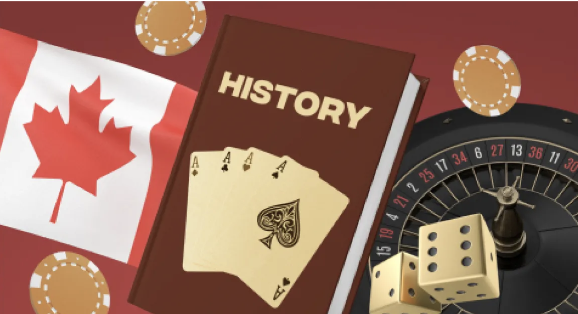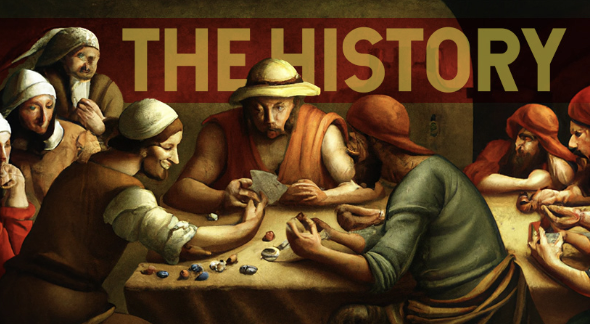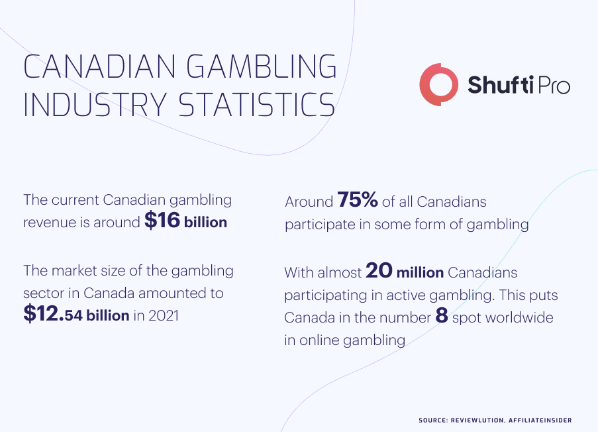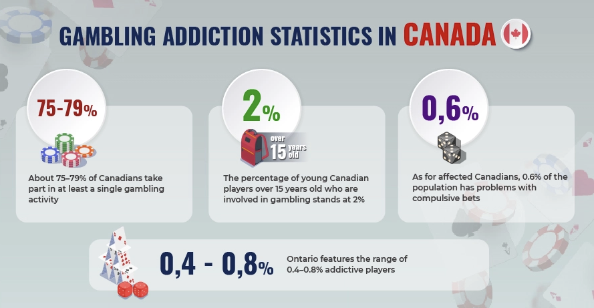Gambling History in Canada: A Walk Through the Canadian Casino History

The gambling history in Canada, deeply rooted in Indigenous traditions, traces back to 1497 when John Abbot encountered tribes engaging in games of chance.
In 1985, Canada recognised gambling, leading to the opening of the first official casino in 1994. This marked the beginning of a thriving industry, with provinces like Manitoba and Québec following suit.
Winnipeg hosted Canada's inaugural commercial casino in 1989, and Montréal launched its own in 1993. This evolution reflects the transformation of betting in this country from its Indigenous origins to a regulated, entertainment-driven sector benefiting communities nationwide.
Grasping the importance of Canadian casino history allows us to comprehend the evolution of gambles in Canada, its regulation, its impact on individuals and society, and the development of responsibility measures. This historical perspective provides valuable insights into the broader context of this activity in the country.
What Was the Role of Indigenous Gambling History in Canada in Early Settlements?
It is important to note that Indigenous gambling history Canada is complex and has been influenced by colonisation and the assimilation of Indigenous peoples. Indigenous peoples have long cherished their unique forms of betting and games.
These activities weren’t just about chance; they were woven into the very fabric of their communities, often intertwined with spiritual beliefs and cultural practices. With the arrival of European settlers, new avenues like lotteries emerged, primarily aimed at funding public projects like infrastructure development.
Early European settlers collaborated with indigenous communities to establish Early Canadian gambling settlements. Here are some key highlights:
- Gambling in Canada dates back to early Indigenous cultures and French colonists.
- First Nations in Canada engaged in games of chance like stick and bone games.
- French colonists likely introduced early casino games in the 1700s and 1800s.
- Gambling was banned in 1892 but returned in the 1900s.
- The
What are Indigenous Gambling Games in Canada?
Indigenous communities have a rich tapestry of traditional gambling games highlighting their cultural heritage. These include engaging activities like Stick games, where two teams try to guess the hand holding the sticks, and Bone games, a thrilling Inuit tradition involving the location of hidden bones.
Among the Cree, Hand games revolve around guessing a concealed object’s whereabouts, while the Muskowpetung First Nation and Qu’Appelle Indian Reserve play Counting sticks to guess the number of sticks in a bundle.
Additionally, there’s the lively game of Slahal, enjoyed by various Indigenous groups, where players guess the bone’s location and often add an element of betting to the mix. These games exemplify the vibrant diversity of traditional gaming practices among Indigenous peoples in Canada.
What Is the Historical Role of Lotteries in Funding Public Projects in Canada?
Lotteries in Canada have a centuries-old tradition of funding crucial public endeavours. In 1612, the
In 1974, Canada held its first national lottery, which served as a fundraiser for the 1976 Montreal Olympics, marking a significant chapter in lottery regulation history Canada. Then, in 1983, the federal government passed the Athletic Contests and Events Pool Act, creating the
Referred to colloquially as the “First Canadian casinos,” these pioneering establishments have set the stage for a remarkable evolution in the country’s recreational industry. The economic impact of Canadian casinos extends beyond the boundaries of mere entertainment. These casinos have become key players in bolstering Canada’s fiscal health, a testament to the growth and vitality of the casino market in the country. The market continues flourishing, leaving an indelible mark on Canada’s economic landscape. Horse racing history Canada traces its roots to the early 1800s, flourishing in Montreal’s fur trading hub. European settlers introduced gambling traditions, birthing card games, and horse racing. Bets flowed at tracks and through bookmakers. In 1892, strict regulations curtailed gaming, sparing only horse race betting. Today, Canadian horse racing is rigorously overseen by the Canadian Pari-Mutuel Agency, governing all aspects of pari-mutuel betting. Shifting to sports betting history Canada, early settlers avidly wagered on diverse competitions, including boxing, ice hockey, and horse racing. In 1985, the federal government’s Criminal Code authorised provincial regulation and licensing of sports betting. Fast forward to 2021, a pivotal year as the Canadian government greenlit single-game sports betting, liberating it from parlay restrictions. This transformative move is poised to significantly impact Canada’s economy, potentially generating billions in revenue. For those interested in the development of the Canadian gaming landscape, exploring the Online gambling history Canada provides valuable insights into its evolution. Online gambling has surged in popularity in Canada in recent decades—restrictions on Canadian gambling trace back to the 19th century when the Canadian Criminal Code was introduced. However, in recent years, Canada has begun to ease regulations and simplify registration procedures. The first Canadian casino opened in Winnipeg in 1989, sparking a wave of similar establishments across Manitoba, Saskatchewan, Ontario, Quebec, and Nova Scotia. Several critical regulatory changes have shaped the landscape of online gambling in Canada: Notably, no specific laws prohibit Canadian online gaming enthusiasts from utilising international gambling websites. This flexibility, coupled with the online gambling regulation history Canada, which showcases Canada’s increasingly lenient gambling regulations, is expected to drive continued growth in the country’s online gambling industry. The vibrant story of Canadian gambling unfolds through the lens of Canadian gambling legal milestones and the fascinating twists in Provincial gambling history Canada, shaping a thriving multibillion-dollar industry. Pivotal legal milestones have shaped the journey of Canadian gambling, steering the industry’s growth. Today, it’s a thriving multibillion-dollar sector boasting over 100 operational casinos. The dynamic landscape unfolds as provinces gain licensing and regulatory authority while federal interventions pave the way for sports betting, including single-game sports betting. The future holds promise, with the legalisation of single-game sports betting expected to fuel a substantial revenue surge. The social impact of gambling in Canada has been multifaceted. While a common pastime, the proliferation of gambling options, including online platforms, necessitates vigilant monitoring. A minority suffers from problem gambling, raising concerns about addiction, family disruption, and youth involvement. Over time, public perception has shifted from viewing excessive gambling as a vice to recognising it as a public health issue. Calls for more robust problem-gambling policies have emerged from the research community. Furthermore, the COVID-19 pandemic has profoundly affected the Canadian gambling industry, magnifying its health, social, emotional, and economic ramifications. Public opinion on gambling Canada has thus evolved, underscoring the need for proactive measures. A summary of Canadian casino history reflects a journey from Indigenous gambling traditions to a thriving, regulated industry. Lotteries have played a crucial role in funding public projects, while the birth of modern casinos in the 1990s marked a significant turning point. Horse racing and sports betting have deep historical roots, with recent changes in sports betting regulations poised to impact the economy significantly. Online gambling has also gained prominence, driven by evolving regulations. However, the modern implications of gambling history Canada involve a nuanced understanding of its societal and economic impacts and the need for responsible gambling measures in a changing landscape. Best low deposit casinos: 1 dollar deposit, 5 dollar deposit Brands: Zodiac Casino, Captain Cooks Gambling became legal in Canada in 1985, leading to the opening of the first official casino in 1994. The inaugural commercial brick-and-mortar casino in Canada made its debut in Winnipeg in 1989, with a subsequent establishment opening its doors in Montreal in 1993. Lotteries in Canada have historically contributed to society by funding crucial public endeavours, including infrastructure development, education, and environmental initiatives. Indigenous communities in Canada have a rich history of traditional gambling games, which are deeply intertwined with their cultural heritage, spiritual beliefs, and community life. These games include Stick, Bone, Hand, Counting sticks, and Slahal. Online gambling has evolved in Canada over the years due to regulatory changes. In 1985, the federal government granted provinces the authority to regulate and license sports betting. A significant development occurred in 2021 when Canada legalised single-game sports betting, departing from the previous reliance on parlay bets. This, coupled with lenient regulations, has led to the growth of the online gambling industry. Yes, there are significant regional differences in gambling history, with provinces like Manitoba, Quebec, Ontario, and British Columbia establishing their own casinos and lotteries. Sports betting became popular in Canada after the federal government's Criminal Code authorised provincial regulation and licensing of sports betting in 1985. Gambling has contributed significantly to Canada's economy, with over 100 operational casinos playing a key role in bolstering the nation's fiscal health. Major legal changes affecting gambling in Canada include the 1985 federal government's authorization of provincial regulation of sports betting and the 2021 legalisation of single-game sports betting. Public opinion on gambling in Canada has evolved. While it was once viewed as a vice, there is now recognition of excessive gambling as a public health issue. Calls for more robust problem-gambling policies have emerged, especially in light of the COVID-19 pandemic, which magnified the social, economic, and health ramifications of gambling.What Is the History of Lottery Regulation in Canada?

In 1993, Canada’s inaugural modern casino, Casino Niagara, emerged under Ontario’s government, sparking a casino boom nationwide. Overslots to sports betting.What is the Historical Background of Horse Racing and Sports Betting in Canada?
How Did Online Gambling Initially Emerge and Gain Prominence in Canada?
What are the Significant Legal Milestones in Canadian Gambling History?

How Gambling Has Influenced Canadian Culture and Society?

Conclusion
Recommendations for Canadian Players
FAQs
